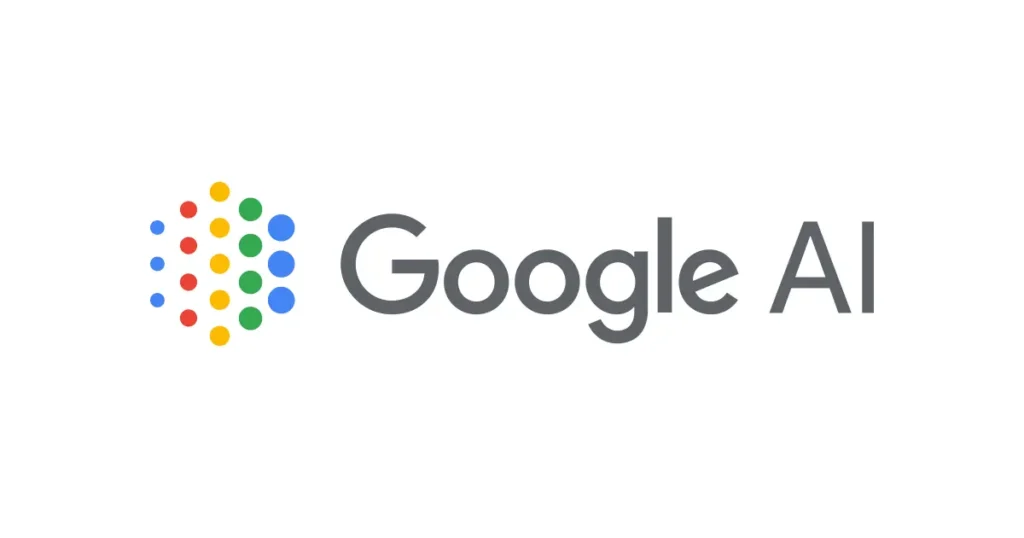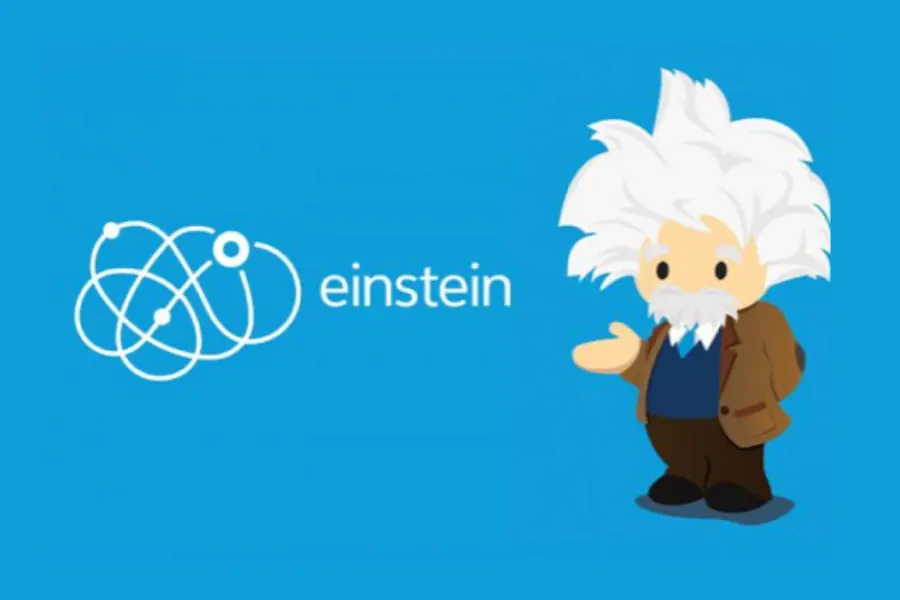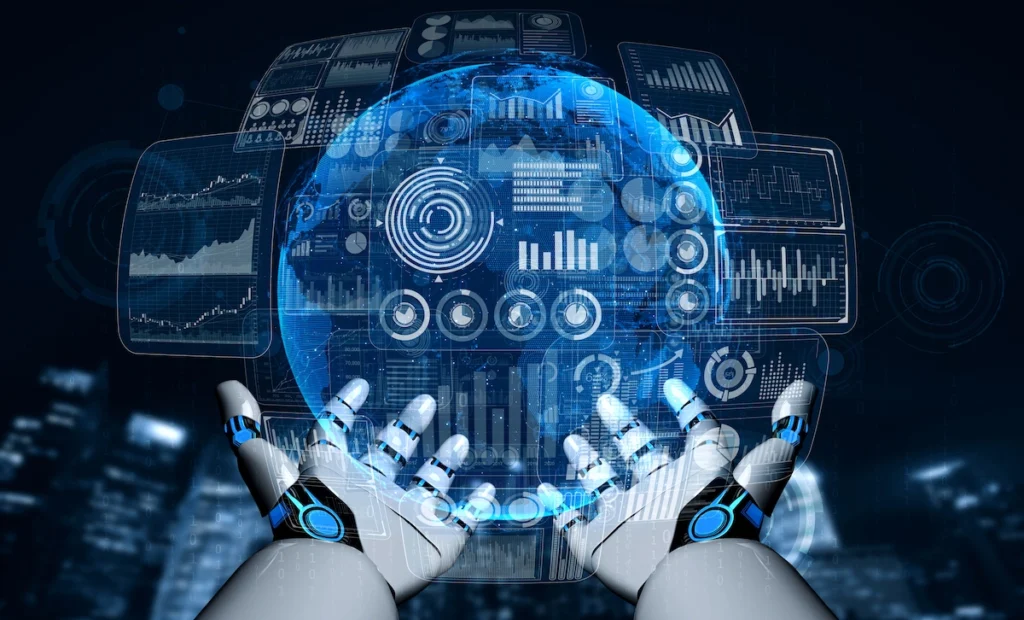Top 10 Artificial intelligence (AI) solutions in 2022

Artificial intelligence Solutions
Artificial Intelligence (AI) and its subfields are at the forefront of many drivers of rapid growth in the technology ecosystem. Described by Gartner as the application of “advanced, logic-based analytical techniques” to simulate human intelligence, AI is an integrative system with multiple use cases for individuals and organizations across all industries.
There are many ways to use AI to support, automate and improve human tasks, as evidenced by the range of solutions available today. These offerings promise to simplify complex tasks quickly and accurately and encourage new uses that were previously impractical or possible. Some wonder if the technology will be used forever or perhaps become more efficient than humans in certain commercial use cases, but its popularity cannot be doubted.
What is artificial intelligence (AI) software?
AI software can be defined in many ways. First, a little description would consider it software capable of simulating intelligent human behavior. However, a broader perspective sees it as a computer application that learns data patterns and provides insights to intelligently solve specific customer problems.
The AI software market includes not only technologies with underlying AI processes, but also platforms that allow developers to build AI systems from scratch. This can range from chatbots to deep and machine learning software and other platforms with cognitive computing capabilities.
To get an idea of the scope, the AI includes the following:
- Machine Learning (ML): Allows a computer to collect data and learn from it to generate insights.
- Deep Learning (DL): A step further into ML, used to identify and learn patterns and trends in large amounts of data.
- Neural Networks: Networked units that learn and recognize patterns similar to the human brain.
- Natural Language Processing (NLP): NLP supports the ability of AI to read, understand, and process human language.
- Computer Vision: Teaching computers to collect and interpret meaningful data from images and video
These skills will be used to create AI software for various use cases, leading to knowledge management, virtual assistance, and autonomous vehicles. As businesses process massive amounts of data to meet customer needs, the need for faster and more accurate software solutions increases.
As expected, the growing adoption of AI at the enterprise level has led to rapid growth in the global AI software market. Gartner maintains an estimated growth of $62.5 billion in 2022, an increase of 21.3% from its 2021 value. By 2025, IDC predicts this market will reach $549.9 billion.
4 critical functions of an AI solution
Whether it’s powering surgical robots in healthcare, detecting fraud in financial transactions, enhancing driver assistance technology in the automotive industry, or personalizing the content of learning for students, AI solutions have broader goals and can be divided into four broad functional categories, including:
#1. Automate processes
The automation of AI applications fulfills the main purpose of AI to reduce human intervention in the execution of tasks, whether they are mundane and repetitive or complex and difficult. By collecting and interpreting the amount of data entered, AI solutions can be leveraged to determine the next steps in a process and execute them seamlessly. It does this by harnessing the capabilities of ML algorithms to create a knowledge base from structured and unstructured data.
Process automation remains a top concern for businesses, with a survey showing that 80% of businesses plan to adopt intelligent automation by 2027.
#2. Data analysis and interpretation
The main function of AI solutions, especially for businesses, is to build a knowledge base of structured and unstructured data, then analyze and interpret that data before making predictions and recommendations from it. his knowledge. It’s called AI Analytics and uses machine learning to examine data and build models.
Whether the analytics tools are predictive, prescriptive, supplemental, or even descriptive, AI is at the heart of preparing data, uncovering new insights and patterns, and forecasting business outcomes. Companies are also turning to AI to improve data quality.
#3. User personalization and engagement
Relationship building has become the holy grail of customer acquisition and retention. Research from McKinsey suggests that a surefire way to do this is through personalization and engagement. Artificial intelligence technologies allow companies to provide customers with personalized offers and to anticipate and respond to their concerns in real-time. This ability manifests in programs such as conversational chatbots and product recommendations generated from learned customer behavior.
Many organizations are still gaining momentum through technology. Gartner reports that 63% of digital marketers struggle with optimizing personalization technology. Their survey of 350 marketing leaders revealed that only 17% are actively using AI and ML solutions at all levels, although 83% believe in their potential.
#4. Business efficacy
In addition to greater automation of traditional processes, AI enables new services and functions that were not possible before. From driverless vehicles and consumer natural language services to previously unimaginable medical breakthroughs, AI is becoming the foundation for new products and markets that will continue to grow.
10 top Artificial intelligence (AI) software solutions in 2022
AI software solutions include generic platforms to support a range of applications and products for narrower, industry-specific use cases. We include an example of both in the following representative list. There are many options on the market today, with 56% of companies using AI for at least one business function.
Below are ten examples of AI software solutions available in 2022.

#1) Google Cloud AI
Google’s mainstream cloud offering includes various tools to support developers, data science, and infrastructure use cases. Multiple voice and language translation tools, vision, audio, and video tools, as well as in-depth and automatic acquisition capabilities, bring AI functionality to experienced technology practitioners and mass consumer markets. Google has been recognized as a Leader in the 2022 Gartner Magic Quadrant for Cloud AI Developer Services.
#2) IBM Watson Studio
Like Google, IBM provides a platform to build and train AI software. IBM Watson Studio provides a multicloud architecture for developers, data scientists, and analysts to collaboratively “build, run, and manage” AI models. With features ranging from AutoAI to Explainable AI, DL, Model Drift, Modeloops ,and Model Risk Management, The studio gives subject matter experts the tools they need to collect and prepare data or build and train AI models.
This allows these professionals to deploy AI models on public or private clouds (IBM Cloud Pak, Microsoft Azure, Google Cloud, or Amazon Web Services) and on-premises. IT teams can open these models while building them with built-in Vastan tools such as natural language classifiers. Its hybrid environment can provide developers with better access to data and more agility.
#3) Salesforce Einstein

Salesforce is a 13-time leader in Gartner’s Magic Quadrant for CRM Customer Engagement Center and has been named the #1 CRM solution by International Data Corporation (IDC) for eight consecutive years. Salesforce offers an advanced set of sales, marketing, and customer experience tools. Salesforce Einstein is an AI product that helps companies recognize patterns in customer data.
The platform has several built-in AI technologies that power Einstein Bots, Prediction Builder, Forecasting, Commerce Cloud Einstein, Service Cloud Einstein, Marketing Cloud Einstein, and other features. Users and developers of new and existing cloud applications can also take advantage of the platform’s prediction and forecasting capabilities in their models. At the launch of Salesforce Einstein in 2016, John Ball, CEO of Einstein, revealed that by creating Einstein, the company would “enable sales professionals to better find leads and convert leads into predictive scoring and in automation”. Opportunities and opportunities in transactions.
#4) Oculeus
Oculeus offers an industry-specific solution. For service providers, network operators, and telecommunications companies that need to protect and defend their communications infrastructure against cyber threats, Oculeus offers a portfolio of software solutions that can help them better manage network operations. According to Founder and CEO Arand Baranowski, Oculeus uses AI and automation “To learn about a company’s regular communication traffic and continuously monitor deviations from expected communication activities. Using its AI-powered technologies, suspicious traffic can be identified, investigated, and blocked within milliseconds. It does this before anyone enters the business. Financial harm is inflicted and the reputation of the telecom provider’s brand is protected.
The Communications Fraud Control Association (CFCA) International Telecom Fraud Loss Loss Survey 2021 revealed losses of more than $39.89 billion, a 28% increase in losses from the previous year. Likewise, network security and operators face more threats of fraud and attacks.
Also Read: How to Hack Blockchain and earn profit
#5) Edsoma
Edsoma represents a narrower use case. Its AI-based reading app software features specialized real-time recognition and speech recognition technology designed to highlight children’s reading strengths and weaknesses. This tracking technology identifies the words spoken and the speed at which users speak to determine if they are pronouncing the words correctly. A correction program helps them get back on track when they mispronounce something.
As Kyle Walgren, Founder and CEO of AdSoma explained, “The e-book is read, the child’s voice is transmitted in real-time through an automatic speech recognition (ASR) system and used for grading. pronunciation, phonetics, timing, etc. And instant results are provided Other Aspects These metrics have been compiled to help teachers and parents make informed decisions.
The goal of this technique is to improve children’s oral reading fluency and provide them with the support they need to develop a healthy reading culture. Edsoma is targeting a $127 billion share of the global Edtech market. Using real-time data to deliver real-time literacy, Adsoma aims to deliver forward-looking, AI-powered education.
#6) Appen

Appen was an early leader as a source of critical data throughout the AI product development lifecycle. This platform delivers and enriches image and video data, speech processing, text, and even alphanumeric data.
It follows four steps in preparing data for AI processing: the first step is data retrieval, which provides automated access to over 250 pre-tagged datasets – then data preparation, followed by data annotation, data labeling, and knowledge graphs, and provides ontology-ready mapping.
Appen has a language database of over 180 languages and a global skill pool of over 1 million talents. Among its many features, its AI-powered data annotation platform is the most popular.
#7) Cognigy
Cognigy is a low-code conversational AI and automation platform recently named a Leader in Gartner’s 2022 Magic Quadrant for Enterprise Conversational AI Platforms. As the need for great customer experiences (CX) grows, more companies are turning to conversational analytics solutions that dig deep into their customers’ text and voice data and uncover insights that drive actionable decisions. intelligent and automated processes.
That’s why Cognizance automates natural communication between employees and customers across multimodal channels and in over 100 languages. Additionally, the technology enables businesses to implement AI-powered voices and chatbots that can address customer concerns with human-like precision.
Cognigy also has an analytics capability – Cognigy Insights – that gives organizations data-driven insights into the best ways to optimize their virtual agents and contact centers. Additionally, the platform allows users to deploy the technology in the cloud or on-premises. Recognized by Gartner for its customer context, flexibility, and consistency, the platform helps companies create new service experiences for customers.
#8) Synthesis
Synthesis AI’s solution generates synthetic data that enables developers to build more powerful and ethical AI models. Engineers can find plenty of well-annotated photorealistic images and videos to deploy their models on this platform. These images and videos are fully annotated with depth maps, surface normals, segmentation maps, and even 2D/3D landmarks.
Virtual product prototyping and the ability to create more ethical AI with augmented datasets that provide similar identity, presence, and representation are also part of the product offerings. Companies can deploy this technology in use cases for API documentation, conference calls, digital people, identity verification, and driver monitoring. With 89% of technical executives believing synthetic data will transform their industry, Synthesis.ai’s technology could be a great fit.

Artificial intelligence
#9) Tealium
Tealium’s data orchestration platform positions itself as a universal data hub for companies looking for a robust customer data platform (CDP) for marketing engagement. This CDP provider offers a range of solutions in its customer data integration system that allow companies to better connect with their customers. Tealium offerings include a tag management system that allows businesses to track and integrate their digital marketing efforts (Tealium iQ), an API hub, ML-powered data platform (Tealium AudienceStream), and a data management solution to facilitate enterprise connectivity.
The company recently sponsored a Forrester Macroeconomic Impact Study that calculates return on investment for reference customers.
#10) Coro
Coro offers end-to-end cybersecurity solutions for medium and small to medium-sized businesses. The platform uses AI to identify and combat malware, ransomware, phishing, and bot security threats across all endpoints, reducing the need for a dedicated IT team. Moreover, it is based on the principle of non-disruptive security, which makes it possible to provide security solutions for organizations with a limited budget and security expertise.
This cybersecurity-as-a-service (CaaS) provider demonstrates how AI can power higher-level services scaled down to lower tiers of the enterprise market.
The Wave of innovation in AI
As AI-based technologies continue to evolve and more companies adopt them, IT managers need to ask themselves how the solutions they choose align with their business goals. With so many sellers riding the wave of AI innovation, buyers need to choose their solutions carefully.
IDC predicts that AI platforms and AI application development and deployment will continue to be the fastest-growing segments of the AI market. This list provides organizations with a starting point to evaluate the approaches and solutions that best meet their needs.
Pingback: How Ai use in cybersecurity future of hacking - TECHINATOR